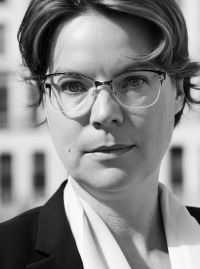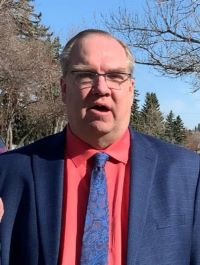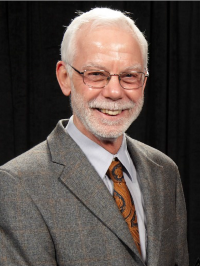Project Advisory Committee
Andrea Armstrong

Dr. Andrea Armstrong has 18 years experience in the development and commercialization of medical isotope technologies. Prior to joining Synergy Oncology, she spent 14 years leading McMaster University’s radioisotope research program, where she led the commercialization of two large-scale production technologies, as well as the development of a new process for generating high-quality lutetium-177 in medium flux research reactors. She was a critical member of the multi-institutional team that secured $35 M from ISED Canada to create the Canadian Medical Isotope Ecosystem in 2023, and was the McMaster lead for the “Care By Air” initiative that saw the first-in-world use of a Remotely Piloted Aircraft System to deliver medical isotopes to hospital.
Andrea has a strong track record of building strategic partnerships to advance both medical and non-medical applications of nuclear technology. During her time at McMaster she established collaborations with scientists at national laboratories, universities, and the private sector, supporting research through provision of expertise, radiotracers, and isotopes. Andrea is the author of the university’s contribution to Canada’s Small Modular Reactor Action Plan, white papers on topics including Canada’s neutron gap and the global medical isotope supply chain, and 35+ peer-reviewed publications. As a recognized expert in her field, Andrea is a regular contributor, speaker, and panelist at events organized by groups including CNIC, CNA, CNS, NAYGN, NRCan, NWMO, OCNI, and TRIUMF. She is also an experienced educator, creating and delivering content for undergraduate and post-graduate courses and workshops, as well as public-facing events such as Doors Open and Nuclear Science Week.
Andrea is the chair of the Canadian Nuclear Society’s Science & Technology of Radioisotopes (STORI) division, a member of the IAEA’s Consultancy Group on Lu-177, and an Adjunct Professor in the Department of Chemistry & Chemical Biology at McMaster University. She holds a PhD in Chemistry from the University of Calgary.
Duane Bratt

Katherine Zukotynski

Dr. Katherine Zukotynski is an Associate Professor in the Departments of Medicine and Radiology at McMaster University and an Associate Member of the School of Biomedical Engineering at McMaster University. She is affiliated with several hospitals including Children’s Hospital Boston.
After completing an undergraduate degree in Engineering Science at the University of Toronto, Dr. Zukotynski completed medical training followed by a residency in radiology, also at the University of Toronto. In 2009, she completed nuclear medicine training through the Joint Program in Nuclear Medicine at Harvard. She was a staff radiologist at the Dana-Farber Cancer Institute and Brigham and Women’s Hospital from 2009 through 2012, and Instructor at Harvard Medical School. Subsequently, Dr. Zukotynski was a staff radiologist at Sunnybrook Health Sciences Centre from 2012 through 2015, an Assistant Professor at the University of Toronto and a Visiting Assistant Professor at Harvard Medical School. She is board certified in nuclear cardiology, as well as in nuclear medicine and radiology, in both the United States and Canada.
Dr. Zukotynski is involved in medical imaging research. Her main areas of research are in PET/CT, particularly as it relates to oncology, neurodegenerative disease and machine learning. She received the RSNA Research and Education Foundation Roentgen Resident/ Fellow Research Award first as a radiology resident and then as a nuclear medicine resident. She held an RSNA Research Scholar Grant from 2012-2014, and currently holds approximately $5M in funding for molecular imaging, predominantly in prostate cancer research.
Dr. Zukotynski is also actively involved in the leadership of several imaging societies. She is Chair of the American Roentgen Ray Society (ARRS) Nuclear Medicine Section Instructional Courses, Chair of the Radiologic Society of North America (RSNA) Nuclear Medicine Refresher Course Committee Track, as well as the Research and Education Public Relations Committee. She is also Secretary of the American College of Nuclear Medicine (ACNM) and immediate past Treasurer/Secretary of the Society of Nuclear Medicine and Molecular Imaging (SNMMI), as well as immediate past president of the SNMMI PET Center of Excellence and Eastern Great Lakes Chapter.
David W. Shoesmith

